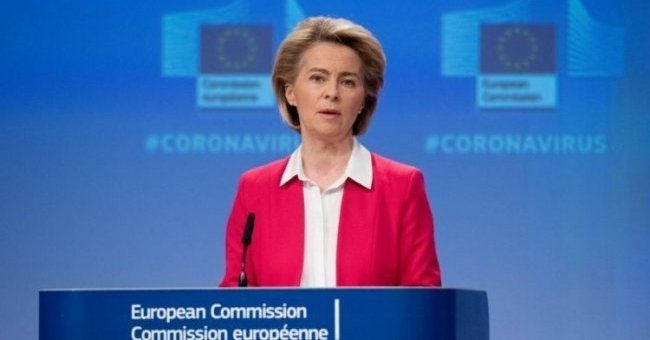What a time to be alive. The world has never been so rich and interconnected. Throughout the past fourty years, globalisation has lifted historic numbers of people out of poverty, particularly in East Asia and Latin America, but also some cities in Africa and South Asia. However, this same globalisation is responsible for an explosion of inequalities, economic and social dumping that is causing immense suffering in European and North American societies, and climate disruption that is increasingly out of control. In short, the prerogative of under-regulated neoliberal capitalism is a permanent state of crisis.
Much of the media has reminded us of this. The word “crisis” has a fascinating etymology: a negative connotation originating from the medieval Latin ‘crisis’, meaning “violent and brutal manifestation of a disease”, but also with a more neutral Greek origin, ‘krisis’ (itself coming from the verb ‘krinein’, which means ‘judgement’ or ‘decision’). In other words, a crisis is a stage of development that requires a decision, which will in turn have a major impact on what comes after it. The financial crisis of 2007-8 offered us an opportunity to radically reshape the international economic model. We sided with the status quo, however, and we are paying the price.
The current pandemic of Covid-19, the disease that comes from the coronavirus Sars-Cov-2, seems to be therefore a crisis in every sense of the word. Europe and the world will never be completely the same again after this pandemic, which has already caused thousands of deaths. Covid-19, which originated in China but has now spread across almost the entire world, is exposing the nature of our globalised world, ravaged by social and environmental strife. This crisis gives us a chance to take a new path, and avoid sinking into the abyss never to escape.
As we wait ‘to change the world’, let’s consider the main lessons to be learned from this global crisis.
Authoritarianism facing the pandemic
One of the most significant consequences has been to the geopolitical order. Is Covid-19 going to reshuffle the cards in the game of international power? Just a few weeks ago, China was the epicentre of the disease and seemed on the brink of economic paralysis, but now it is recovering, slowly and carefully (a second wave of infections is far from unlikely). Some in Europe, like the Czech Prime Minister Andrej Babiš, have praised China’s draconian measures for controlling the virus. Measures implemented by a dictatorship, which mercilessly represses all forms of opposition, as shown by the detention of hundreds of people for posting or sharing information online (according to the Chinese NGO Chinese Human Rights Defenders).
While the situation there is still unclear (it appears restrictions are being lifted, though one district in the centre of the country was placed in lockdown measures on 31st March due to fears of a second wave), China is deploying an aggressive campaign in an attempt to rewrite history: China is coming to save the world, and contain the pandemic which, what’s more, did not even come from their country. Although sending millions of masks abroad is laudable, it is important to remember that a significant number of them do not meet European standards. In addition, suspicions continue to grow over the possibility that China may have significantly underestimated the death toll of the pandemic.
And the fact is, it’s working: who is still talking about the Hong Kong protests, or the oppression of the Uyghurs and Tibetans? Russia did not hesitate to follow suit and organised shipments of aid to Italy. Another gesture of contempt towards a European Union which is said to be much too divided (although its competences in the field of public health are very limited, it has still demonstrated a great ability to adapt, notably with the instrument rescEU and especially the SURE plan).
First lesson: authoritarian leaders cannot be trusted, whether they be very intelligent or wholly oblivious. While Russia and China orchestrate meticulously designed propaganda campaigns, Donald Trump and Jair Bolsonaro are sinking into ever more grotesque buffoonery. The President of the United States is demonstrating his abysmal incompetence while his country becomes one of the global centres of the pandemic, while the Brazilian president disparages scientists’ appeals for increased caution.
Coronavirus and the biodiversity crisis
A second line of thought brings us to the relationship between epidemics and the conservation of biodiversity. There is at this time no scientifically proven direct correlation between the spread of coronavirus and the environmental crisis, even though some studies have indicated the role of atmospheric pollution in the epidemic. Some have nonetheless spoken up about deforestation as an aggravating factor. One of them is Laurence Tubiana, a public face of the fight against the environmental crisis if ever there was one, as she was an ambassador in negotiations at COP21 in 2015. In an interview with the newspaper Ouest-France, the environmental economist called for the world to “learn from” the pandemic, and recalled a UNEP (United Nations Environment Programme) study which concluded that 31% of epidemics, like Ebola or Zika, were linked to deforestation. In fact, cutting down biodiversity reserves brings humans and wildlife closer together, facilitating the transmission of viruses and other harmful bacteria.
Another scientific study conducted last year showed a potentially alarming link between the thawing of permafrost (the permanently frozen ground in the polar regions of the globe) and the resurrection of prehistoric viruses which the human body is no longer adapted to. Now this would be a real ticking time-bomb, which would have an ‘explosion’ lasting decades, since permafrost makes up one quarter of the Earth’s land area.
Nonetheless, many decision-makers have not yet understood (or still don’t want to understand?) that epidemiological and environmental risks are linked. When it comes to the European Green New Deal, the first people to challenge it are of course those who always drag their feet on energy reform. The Polish and Czech governments have in fact proposed that the EU suspend the implementation of its landmark policy in order to concentrate on the battle against the pandemic. In addition, COP26, which was initially scheduled to take place in Glasgow in November, will be postponed. While right now there can be no doubt that this decision was the right one, it is unconscionable to sideline the climate emergency, even after having fought a pandemic. The EU has a record of diplomatic successes on this point and must make use of them by giving unambiguous support to the pursuit of climate negotiations. There is our second lesson.
The EU in total disarray
However, the EU seems to be one of the losers of the pandemic, at least in terms of morale. The legal basis for a common public health policy is summarised in Article 168 of the TFEU, which only gives the EU the remit to support national strategies. The European executive is not strong enough to go up against the leaders of the European Council, a good number of whom have even opposed the creation of coronabonds, intended to reinforce economic and financial solidarity, which is also necessary for economic integration. We’ll leave this hotly debated issue to one side, but let’s acknowledge the fact that it has confused public opinion on how European institutions are responding - which they are - to the pandemic. The EU, institutions and member states together, have to date mobilised more than €280 billion to address the crisis. But communication is everything in this hyper-connected world, and on this matter, Europe is clearly not on the same level as the Chinese and Russian governments.
However, the EU absolutely must not prevaricate when it comes to its fundamental values. While the restrictive measures being imposed to fight against the pandemic are more or less justified, Viktor Orbán is taking advantage of this health emergency to further undermine democracy in Hungary. It may be a cliché, but these values are non-negotiable. Yet the EU will not be able to protect these values if member states continue to control the procedures used to prevent such shifts towards authoritarianism. To put it another way, we need a strong Europe, with an effective federal government and policies (such as for health), that ensure consistency and power internally as well as externally, in a world which is more and more hostile towards any kind of multilateralism. Here is the third lesson we must remember from this pandemic.
A global ‘govern-mentality’
Still, the EU, federal or not, will not be able to promote its fundamental campaigns (the defence of democracy and the rule of law, the promotion of public health, and the pursuit of action against the climate and environmental crisis) without a new form of organisation at the global level. The German sociologist Stefan Aykut addressed this subject, preferring the concept of ‘govern-mentality’ to ‘governance’; the latter, in his opinion, being too closely aligned to the neoliberal vision of New Public Management. This govern-mentality must therefore be more coherent, and include more direct democracy, which has up to this point been mostly absent from the UN authorities.
A real challenge you might say, and the polar opposite of the hostility to multilateralism described above. But a pandemic like Covid-19 cannot be countered effectively unless states cooperate and tell the truth about the figures. As opposed to what we are seeing currently, with suspicions raised against the official figures from China, and states fighting selfishly over masks and medical equipment. Like climate change and protecting democracy, pandemics are transnational challenges, and our current societies will not survive if our response to them is not coordinated.
Which brings us back to the concept of ‘crisis’ discussed at the beginning: the Covid-19 pandemic demands a response which, whatever it may be, will have significant consequences for the next few years. Either Europe rallies and becomes a strong player in a multilateral world, asserting its values and planting the seed of a new ‘govern-mentality’, or indeed it sinks, insignificant, in a world dominated by selfishness and authoritarianism, in which any attempt to save civilisation as we know it would be significantly compromised.


Follow the comments: |
|
